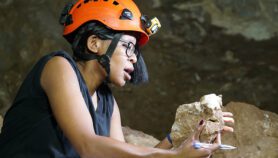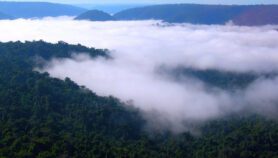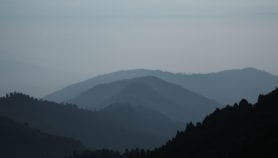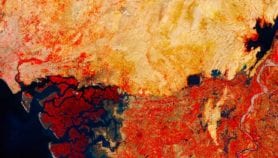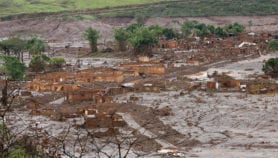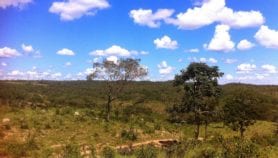Send to a friend
The details you provide on this page will not be used to send unsolicited email, and will not be sold to a 3rd party. See privacy policy.
The Caribbean island of Guadeloupe may be under threat from a tsunami, and inhabitants will have little warning if it happens, scientists have discovered.
A million-tonne chunk of rock from the northern side of the Morne aux Diables (Devils’ Peak) volcano on the nearby island of Dominica could collapse into the sea, unleashing tsunami waves of up to three metres high.
The collapse could potentially weaken three million tonnes of rock further upslope, resulting in even larger landslides and waves of up to five metres high.
"The danger is that a tsunami would only take a few minutes to travel from Dominica to Guadeloupe — giving very little time for evacuation of coastal areas," Richard Teeuw, a geologist from the University of Portsmouth in the United Kingdom, told SciDev.Net.
Teeuw, who led the study, says his team made their discovery when looking at three-dimensional images from Google Earth. They saw visible tension cracks caused by impact waves wearing away the volcano. By observing these they conclude that an earthquake of magnitude of 7–8 could trigger a collapse.
Historically quakes of this strength hit northern Dominica around once every century, Teeuw explained, but the island has experienced two significant earthquakes of similar magnitude in the last ten years.
"It’s not a case of if this landslide and tsunami will happen, but when … It could happen in a hundred years or it could happen next week," Teeuw said in a press release.
However, Alan L. Smith, of the Department of Geology at California State University, told SciDev.Net that although this "is definitely a possible scenario" he believes the landslide "would most probably not enter the sea as a compact block but as a mass of unconsolidated fragments and over a longer time, thus somewhat diluting the effect".
Christopher Kilburn, a researcher at the UK-based Aon-Benfield University College London Hazard Research Centre, told SciDev.Net: "Fortunately, the Portsmouth team have identified the unstable slope before it has collapsed … It may be possible to establish a monitoring network to check the degree of instability and when a collapse is most likely to occur. It is also important that a tsunami warning system is established along the exposed coastlines of Dominica and neighbouring islands."




